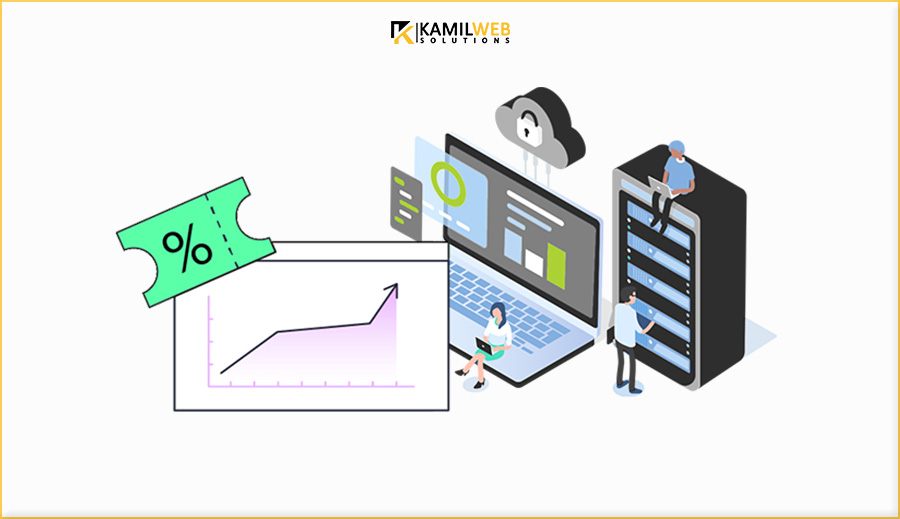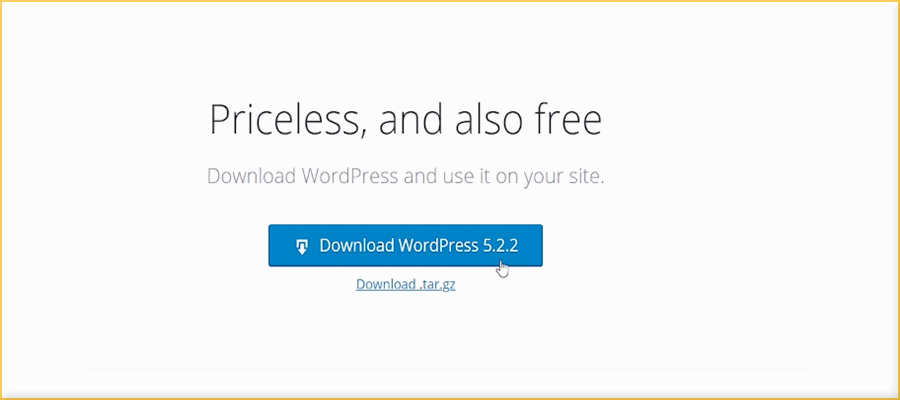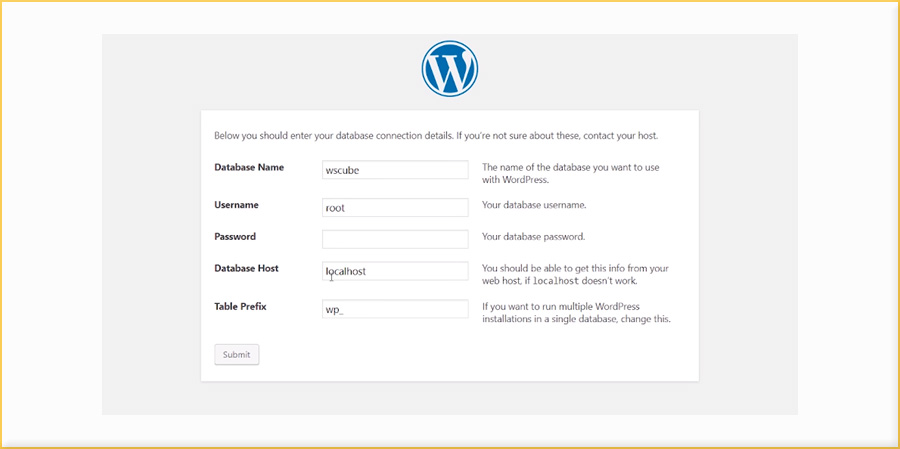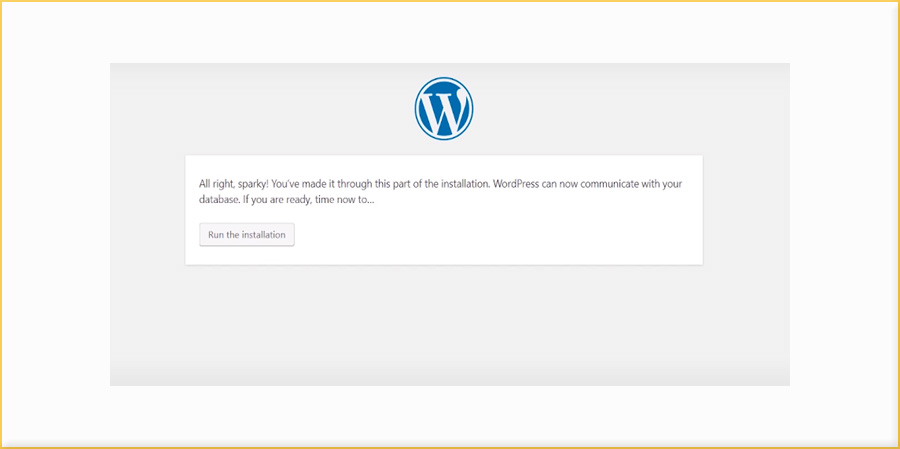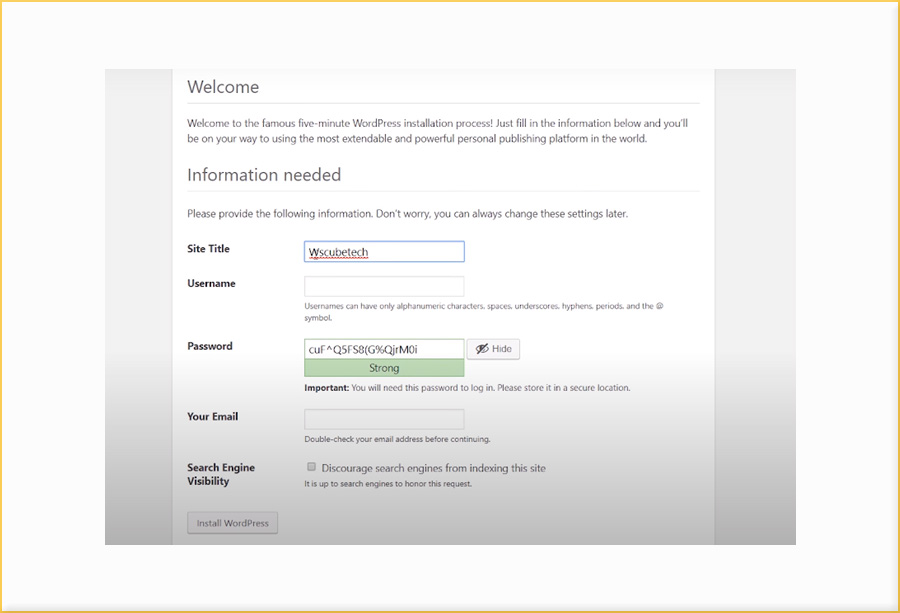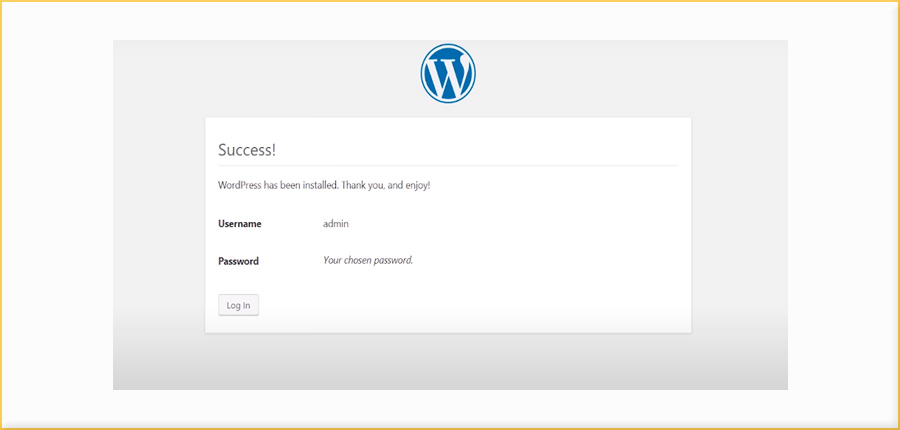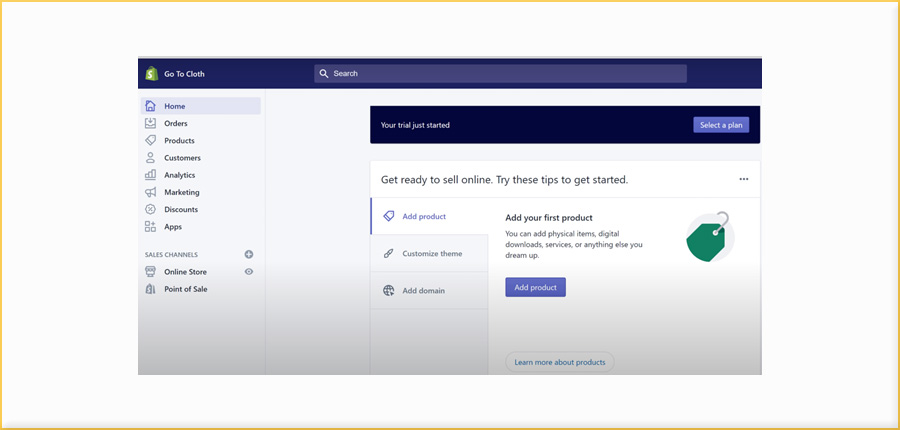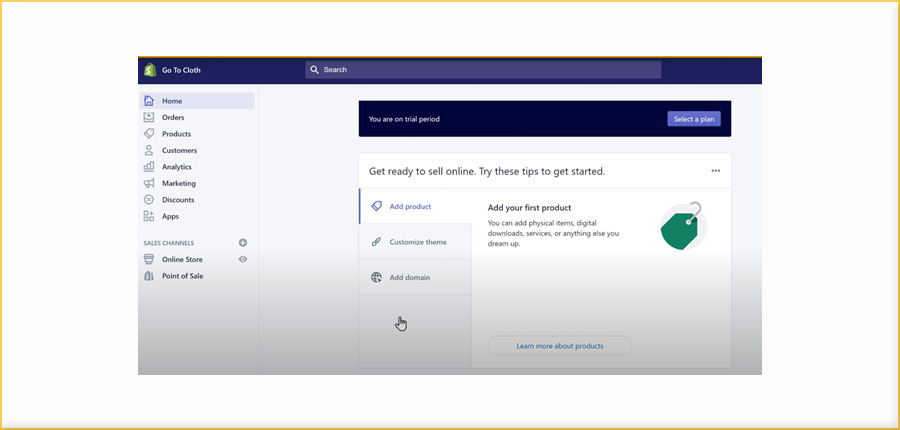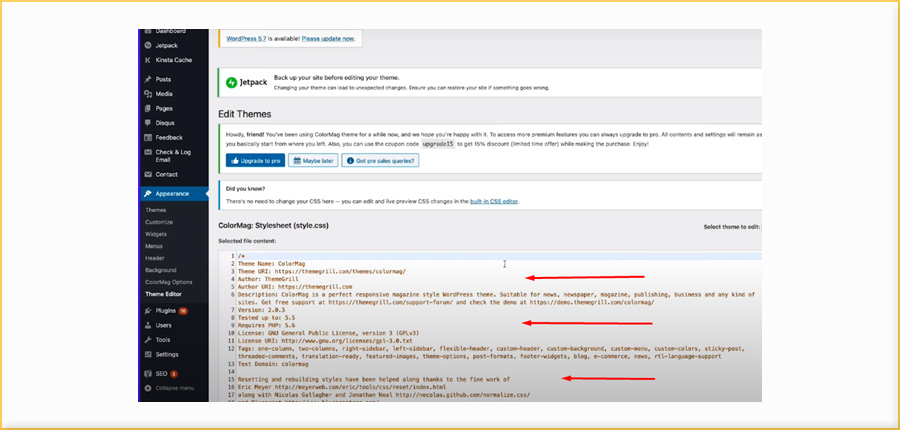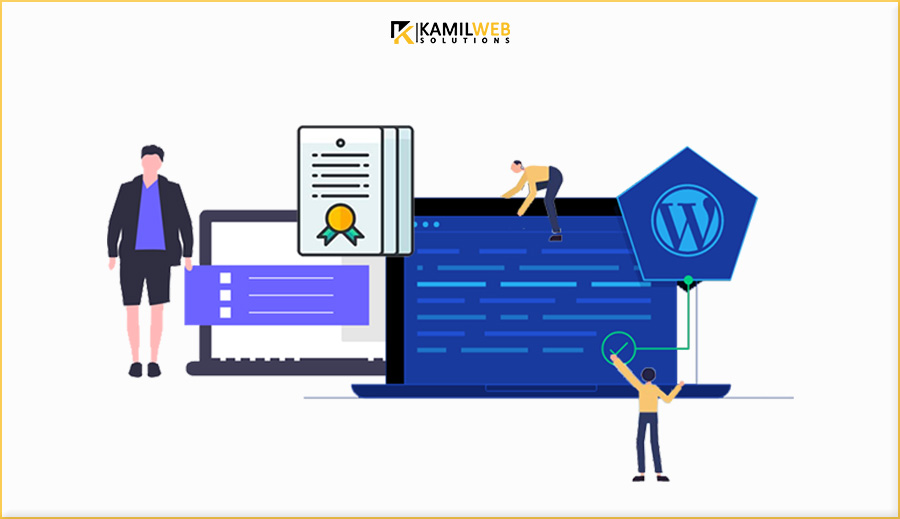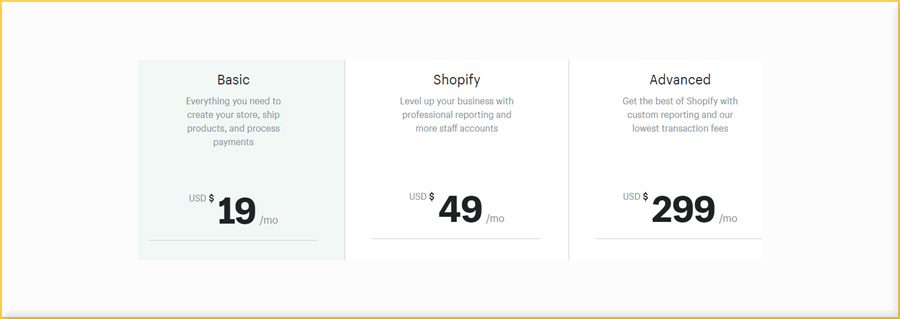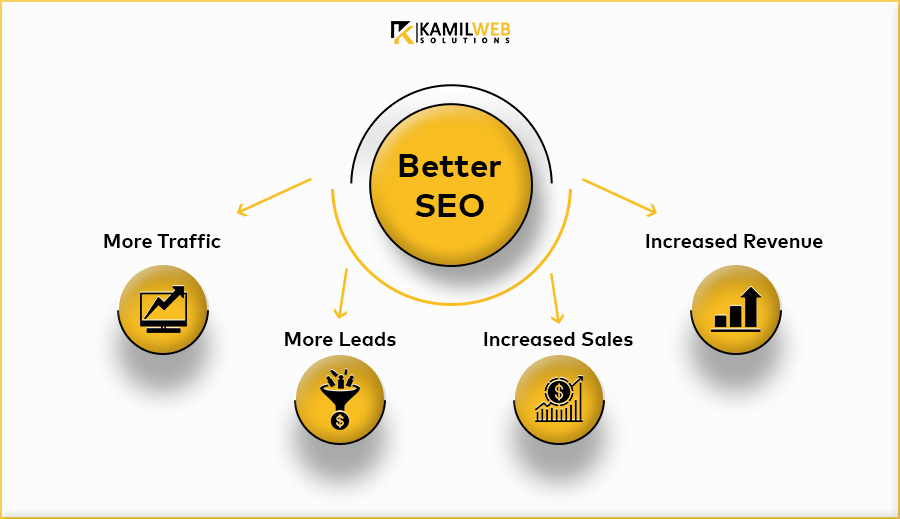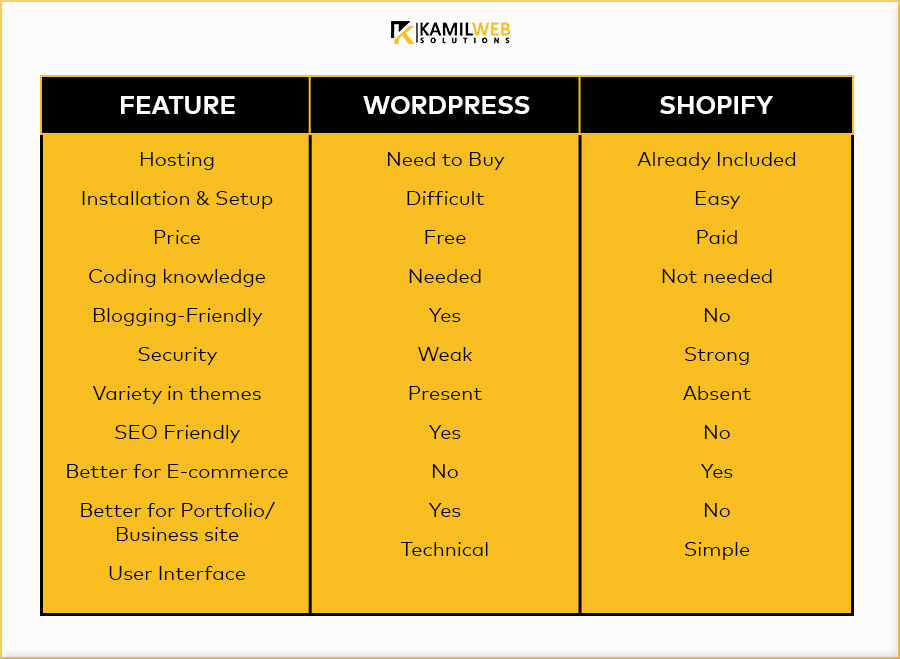+971-56-6256274
+971-56-6256274
WordPress vs. Shopify: Which One is Better in 2022?
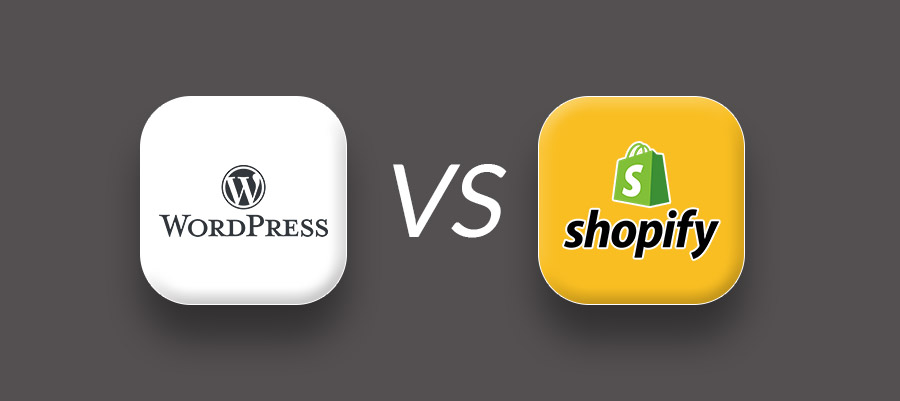
2022 is the high time for business growth and automation, and the best way to build a credible online presence is by building a website.
A majority of businesspersons and entrepreneurs struggle siding with one in the wordpress vs. shopify debate.
Here is a detailed feature-to-feature comparison of each platform to make it easier for you to choose a platform that best fits your business needs:
1. Starting off With Hosting and Setup
Starting with Shopify is relatively easier compared to WordPress reason being minimal technical requirements to set up a website on Shopify. WordPress is an open source content management system and provides free integration into your website. Shopify, on the contrary, is a paid platform and gives a ready-made website structure that you can tweak per your requirements.
-
Installation of WordPress
When choosing between wordpress vs. shopify, WP is a little technical when it comes to installation. You will first have to buy hosting from reliable sources and Content Management Systems like WordPress will then be installed on the hosted site. When you want to get into e-commerce, you will also have to add woo-commerce into your WordPress for any kind of financial exchange.
Follow this 5 step process to install WordPress Smoothly:
- Buy a suitable hosting plan from a reliable source, e.g., GoDaddy or Hostinger. And download WP zip file.
2. Log into your domain in the local host.
3. Run the installation command.
4. Put your email and other accurate credentials in respective blanks.
5. Remember your username and password for future login.
-
Installation Of Shopify
The process of installing Shopify goes like the following:
- Buy your preferred package or start a free trial.
2. Go to the shopify website or software.
3. Log in with your credentials and start adding products to your store.
One common concern among WP users centers on the question; can you use shopify with wordpress. The one word answer is yes. You will have to install the Shopify plugin in WP to activate its features.
-
Adding shopify to wordpress:
If you’re wondering how to add shopify to wordpress, buy a Shopify account, install its e-commerce plugin in WP, and you will be able to access your Shopify store from WordPress. You can also get services of a Kamil Web Solutions for installation and setup of either of them.
Pro-Tip: Outsource the installation and maintenance of your website to a reliable agency to save you time and the troublesome process of finding the right domain and hosting. In this regard, we can offer you a free consultation on website building that will guide you through the process of building your own website from scratch.
2. The Maintenance Check
WordPress requires some degree of maintenance and knowledge in programming, as you will need to add some coding tags or scripts to the posts and the pages of your WP websites shown in the image below.
The dashboard of the website has three to four levels in the admin controls. You can manage the dashboard as a viewer, contributor, editor, or admin to make changes in the backend.
Shopify, on the other hand, does not require rigorous maintenance. You can easily manage a Shopify store single-handedly. It will save you money that you would otherwise spend on hiring a team on WordPress. Comparing wordpress vs. shopify, the latter requires little to no technical maintenance.
-
Technical Requirements for a Shopify Website
You just have to install a website template and change the pictures and content as per your niche and products. It’s preferable to keep the latest development trends into consideration for a successful website.
If you are planning to market your Shopify website, you might need to do a content audit, run some analytic tools, and install the SEO apps before starting a campaign for your products. This will make your website optimally receptive to anticipated traffic overflow from the marketing campaigns. Make sure to tick all boxes in this checklist before starting a Shopify store.
-
Technical Requirements for a WordPress Site
One of the most striking differences between Shopify and WordPress is the prerequisite of having technical knowledge. Shopify is more layman-friendly, while WordPress is more sophisticated to cater to a variety of purposes it serves.
Following are some technical must-haves to successfully run a WordPress website:
- Knowledge of website development
- Website designing skills
- SEO knowledge
- HTML, CSS, JavaScript, and PHP basics
3. Diving Into the Financial Terms
Building a website can cost you a fortune. But, at the same time, it will be a worthy investment in the long run because it decides the first impression of your business on your client. The most common question that pops up in our mind is how much does it cost to use Shopify and WordPress?
Average Price: It takes roughly 100$ to 3000$ to build a WordPress Website from scratch. The Shopify account, in contrast, costs from 250$ to 3500$.
With over seven years of experience in this field, we suggest finding reliable agencies like Kamil Web Solutions that provide basic sites starting from 500$ to complex websites with 3000$ with top-notch services and free suggestions from the experts. The price depends on the number of pages of the website and the extensive process that goes behind this.
-
Is Shopify cheaper than WordPress?
No, unlike WP, Shopify has monthly and yearly packages with no additional charges. WP, despite being free, charges for some plugins and security upgrades.
-
Shopify Packages
Shopify payment plans come in three forms: Basic, Shopify, and Advanced. They are based on monthly subscriptions and annual payment plans. You will get a discounted monthly plan when you pay in annual subscriptions. The size of your business determines which package would best suit you.
-
WordPress Packages
You will find a plethora of WordPress hosting providers that not only provide you with hosting but also give you pre-installed WordPress on them. One famous such hosting provider includes Bluehost, which provides various complementary features and services along with WP hosting:
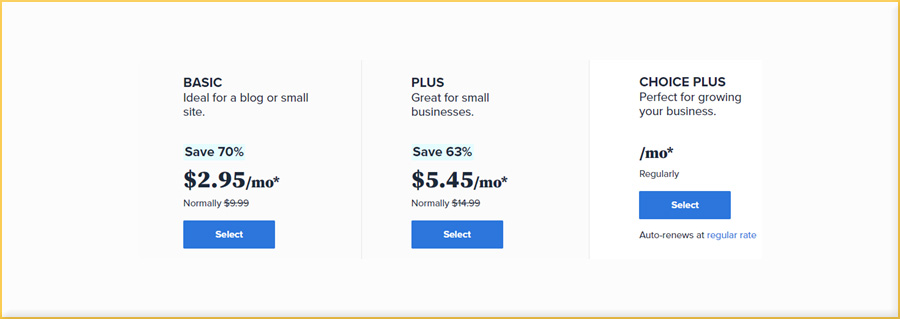
-
The Truth About Hidden Charges
WordPress is an open source and is free for use, but the hidden charges like domain name registration and hosting charges are in place that will cost you an arm and a leg. Moreover, the hosting needs to be maintained annually, meaning you’ll have to renew your hosting plan every 12 months. Additionally, you will also have to spend a fraction of your revenue on hiring technical assistance for WordPress.
On the contrary, a Shopify account is a monthly or yearly subscription-based plan with no hidden charges. Some of the Shopify apps are paid and serve as an accessory tool in it.

In a nutshell, to end the financial debate of wordpress vs. shopify, it can be said that both platforms stand the same in terms of net expenses. All the paid tools in each of them mostly offer a free trial, and you can choose to withdraw from your subscription at any time.
4. 24/7 Support
In terms of the customer care battle between wordpress vs. shopify, Shopify outruns WP as it provides 24/7 support on its platform. Here is a detailed analysis of both platforms:
-
Chat Support in Shopify
Shopify offers its own Help Center for its users, which is just a click away. If you face any issue while installing Shopify or guidance, the help center has got your back. For any sort of troubleshooting, either technical or financial, you can always directly contact the Shopify support team. The response time is typically 24 hours.
-
Chat Support in WordPress
WordPress does not offer its help center and direct guidance to its users. But some paid plugins give you access to their chat support. Some indirect customers support sources that you can opt for include:
- Hosting Company
- WP forums
- Plugin Providers
5. Getting Fraud-Proof Security
Let’s scrutinize the shopify versus wordpress debate on security grounds. It plays a crucial role in determining the best for your business. If the platform isn’t safe enough, it can potentially ruin your work and cause a threat to your products and revenue. Generally, WordPress is more prone to hacking than Shopify.
-
Security in WordPress
WordPress offers an SSL security certificate to websites. It is a standard global security technology that keeps the privacy and security of your website encrypted and safe. Besides, you will have to manually install the security plugin because WP does not provide any other security feature by default. Its security lags in comparison with Shopify.
-
Security in Shopify
Unlike WP, Shopify has a built-in advanced security system that runs on automation. You do not need to do anything manually because the website has regular security updates and provides PCI compliance, which keeps all your bank details and other financial information private and secure.
6. User-Interface
The user interface of both apps comes in a head-to-head competition because both are made with an intent to accommodate drag-and-drop features. Shopify again surpasses WordPress with its efficient and easy-to-navigate dashboard setup.

On the flip side, the user interface of a WordPress site is comparatively complicated and requires background information on HTML tags and basic CSS. All the plugins also keep getting added to the dashboard after installation, due to which the final interface seems technical and complicated to beginners.

Moreover, mobile performance of Shopify is also better than WordPress because it requires additional manual management for mobile interface development. Here’s how to optimize your website for mobile devices.
-
Display and Templates
WordPress wins when it comes to the variety of display and theme options. It provides thousands of free themes, and some premium paid themes for different businesses. The display can also be customized by programming, which is not the case in Shopify.
Shopify does offer website templates, but the free version of the templates is very limited and does not fit the diverse needs of any business. The paid version of website templates is available in Shopify, but WordPress themes surpass them in design and functionality.
-
Plugins and Apps
Is Shopify better than WordPress? Not when it comes to plugins vs. apps. Both platforms offer some add-ons for the website that perform specific functions and act as tools. In WP, they have named plugins, and other platform calls it Shopify apps.

WP plugins are far ahead of Shopify apps because most of them are free and provide on-point results with great efficacy and versatility. Each plugin or app is dedicated to performing a specific task. For instance, YOAST is an SEO plugin in WP, and Easy Reviews is an app in Shopify that lets you integrate buyer reviews into your store.

7. Possibility of Scaling
Scaling can be done on different levels on the basis of customizability, versatility, and access. WordPress is undoubtedly more scalable, and the following are the reasons:
-
Customizable functionality
WordPress website can be customized into the website of your choice, from portfolio to business to e-commerce website. Shopify, in contrast, is dedicated to e-commerce only. If you can code, you will be able to easily change, remove, and add different features to your website.
-
Which One is More Versatile
When we compare wordpress vs. shopify in terms of versatility, WP will shine through. It offers tons of free options and fits the needs of diverse businesses. The purpose of a WP site can also vary from business to business, e.g., it can serve as a blog site or a dynamic online portal per your preference.
-
Multinational Integration
WordPress is a huge platform spread all across the world and offers simultaneous integration of several languages. However, the Shopify site can only be used for a dedicated location or country, and it does not offer multinational options.
8. SEO-Flexibility
Search Engine Optimization can make or break your website. Internet is a highly saturated marketplace, and if your business doesn’t rank on top search pages, it doesn’t exist for the customers. WordPress supersedes Shopify in SEO flexibility because it provides detailed SEO analysis.
- Reasons Why WordPress is Better for SEO

Following are some of the key features that make WP a better site for search engines to crawl:
- Added Benefit of Blogging: Comparing shopify vs. wordpress blog, WP outweighs the other. You have the privilege of adding a blog portion to your e-commerce or business site. Shopify also caters to blogging needs to some extent, but it’s not as advanced as WP.
- Chances to Rank: WP provides a chain of tools and plugins to improve your website rankings with improved SEO. It offers SEO optimization for every image and piece of content.
- Better For Content Marketing: A huge portion of blogging websites are hosted on WP because it is ideal for content marketing. It also offers opt-in email forms and other content marketing tools to grow your business or brand. As opposed to WP, Shopify does not offer email hosting for its users.
9. Which One is Better for You?
Both platforms have their own benefits and flaws, and there is no platform that wins the game in all aspects. The answer to “which platform is better” is highly subjective. The platform that is best for you depends on your needs and the type of business you want to run.
-
Best fit for E-Commerce Website
The common concern regarding WP questions is wordpress good for ecommerce. Shopify is an exclusive e-commerce platform and hence, outruns WP when it comes to e-commerce. There are numerous reasons for so which include:
- Variety of payment options
- Top tier security
- Ability to Handle bulk orders
The E-commerce version of WordPress can be installed for free using the woo-commerce plugin, but its security is questionable. From shopify vs. wordpress woocommerce, if you are going with WP for e-commerce, make sure to buy security separately to keep your website safe.
-
Suitable for Business Website
Shopify does not entertain any website other than an e-commerce website. That is why WP is the best fit for small, medium-sized, and large-sized business websites.
-
Right Choice for Blog/Portfolio Website
WP is also an ideal platform for beginners and professionals who want to make a website for their online presence. The blog can further be used for content marketing and SEO purposes.
10. What do the Stats Say?
According to statistics, there are around 200 million active websites on the Internet. WordPress tops the list with 30.40% share, and Shopify resides at only 1%.

11. Revenue Game wordpress vs. shopify
WordPress has a higher hand on Shopify for its SEO-friendly features, and this makes WP a better revenue generator than the others. SEO helps you rank your website higher on google and eventually improves your website traffic organically.
The increased traffic can potentially translate into more leads and sales, adding to the total revenue generated. Moreover, affiliate programs can also make you millions from blogs.
Better SEO(arrow)=More Traffic=More Leads=Increased Sales=Increased Revenue
12. The Best Examples
The Internet is flooded with websites hosted on WP, and most of the famous e-commerce websites you come across use Shopify. Following are famous websites that use WP as their CMS:
- The Obama Foundation
- Angry Birds
- The Next Web
Some reputed Shopify ecommerce stores are as follows;
- Kylie Cosmetics
- Colourpop
- Jeffree Star Cosmetics
